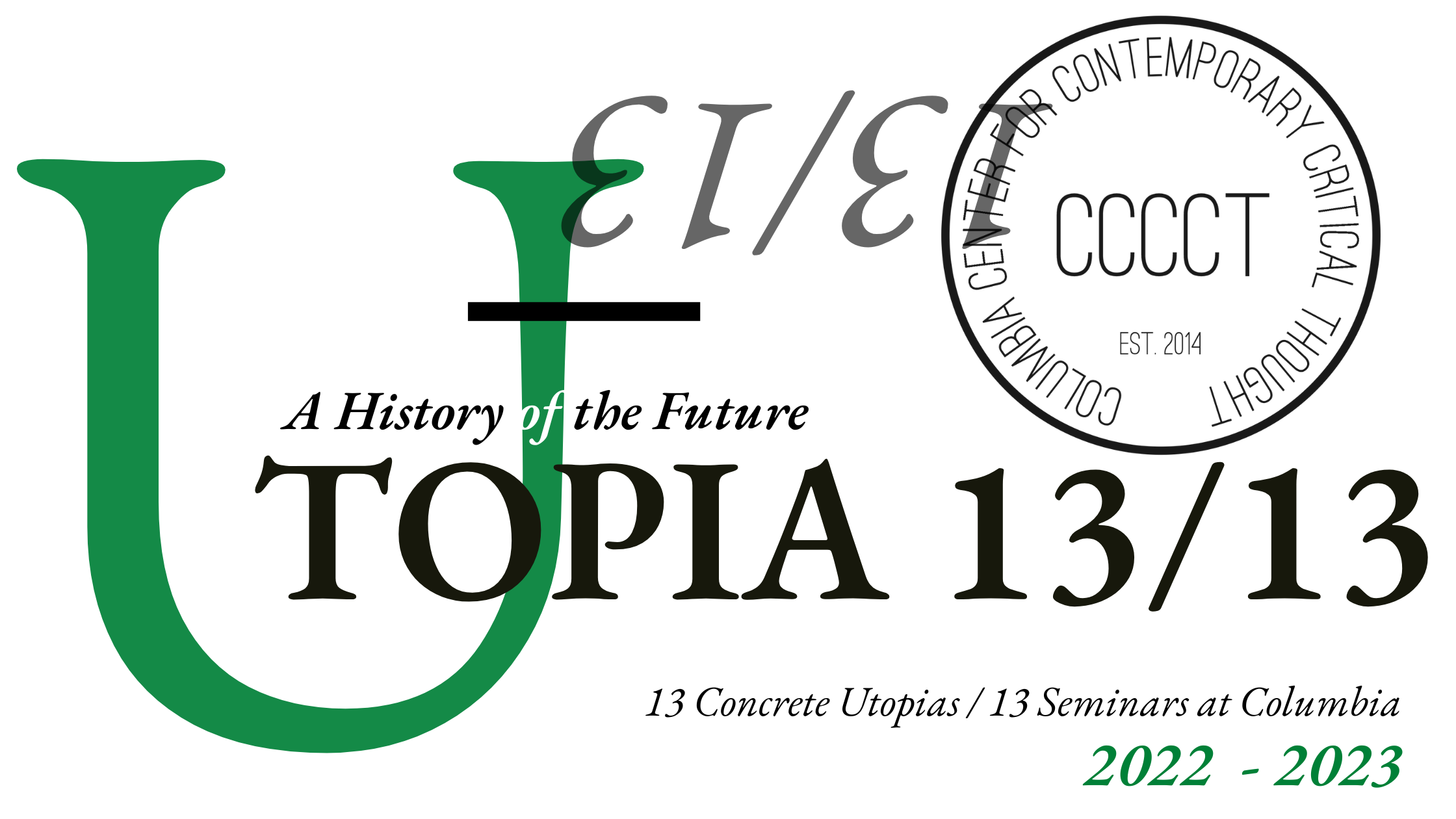“Uncovering lines of escape: towards a concept of concrete utopia in the age of catastrophes,” by Étienne Balibar
Etienne Balibar and Bernard E. Harcourt
read and discuss
Ernst Bloch, The Spirit of Utopia (1918)
Michel Foucault, “Of Other Spaces: Utopias and Heterotopias” (1967/1984)
Fredric Jameson, Archaeologies of the Future (2005)
Marx and Engels, The Communist Manifesto (1847)
Alex Williams and Nick Srnicek, Manifesto for an Accelerationist Politics (2013)
Erik Olin Wright, Envisioning Real Utopias (Verso 2010)
and Zapatista Army of National Liberation, Sixth Declaration of the Selva Lacandonia (2005)
(all readings available on-line here)
~ ~ ~
Wednesday, September 28, 2022
Maison Française, Columbia University
~ ~ ~
In his lecture, “Uncovering lines of escape: towards a concept of concrete utopia in the age of catastrophes,” the philosopher Étienne Balibar develops three dimensions of the urgency of rethinking concrete utopias in these times of crises: first, Balibar discusses the dilemmas surrounding the concept of utopia and utopian thinking, without which there could be no “radical” politics, but at a time and in an age of at least three major catastrophes (the climate, the nuclear, and the digital); second, Balibar explores “real” or “concrete” utopias in light of the Foucauldian distinction between “utopias” and “heterotopias,” which could also be interpreted as a conversion of utopia into heterotopias; third, Balibar concludes on the transcendental problems of the different modalities of the “possible,” the “impossible,” the “necessary,” the “inevitable,” in their relationship to a concept of time (e.g. Bloch’s time of “not-yet”), as displaced by the questioning of “utopia” in today’s catastrophic circumstances.
